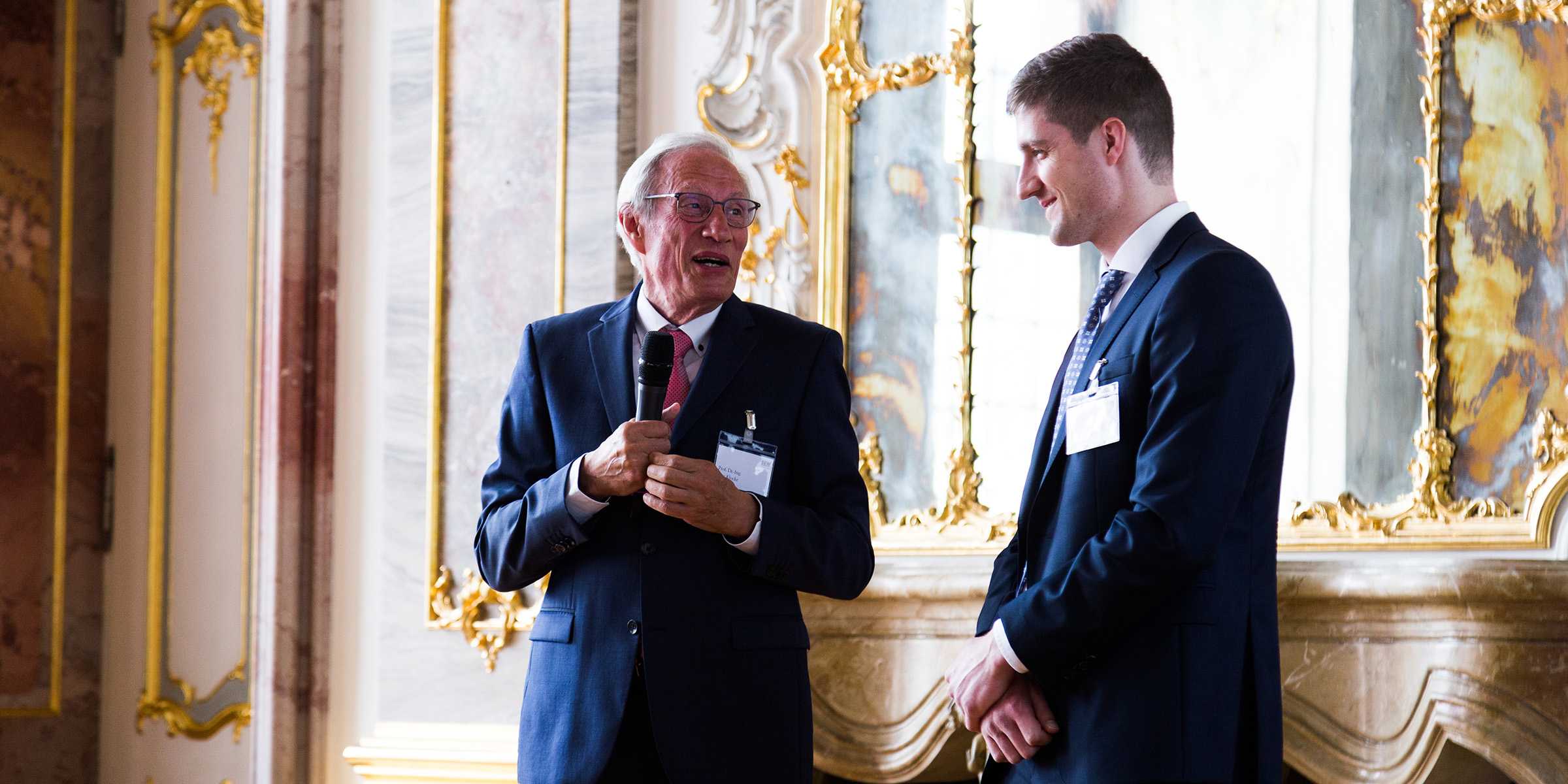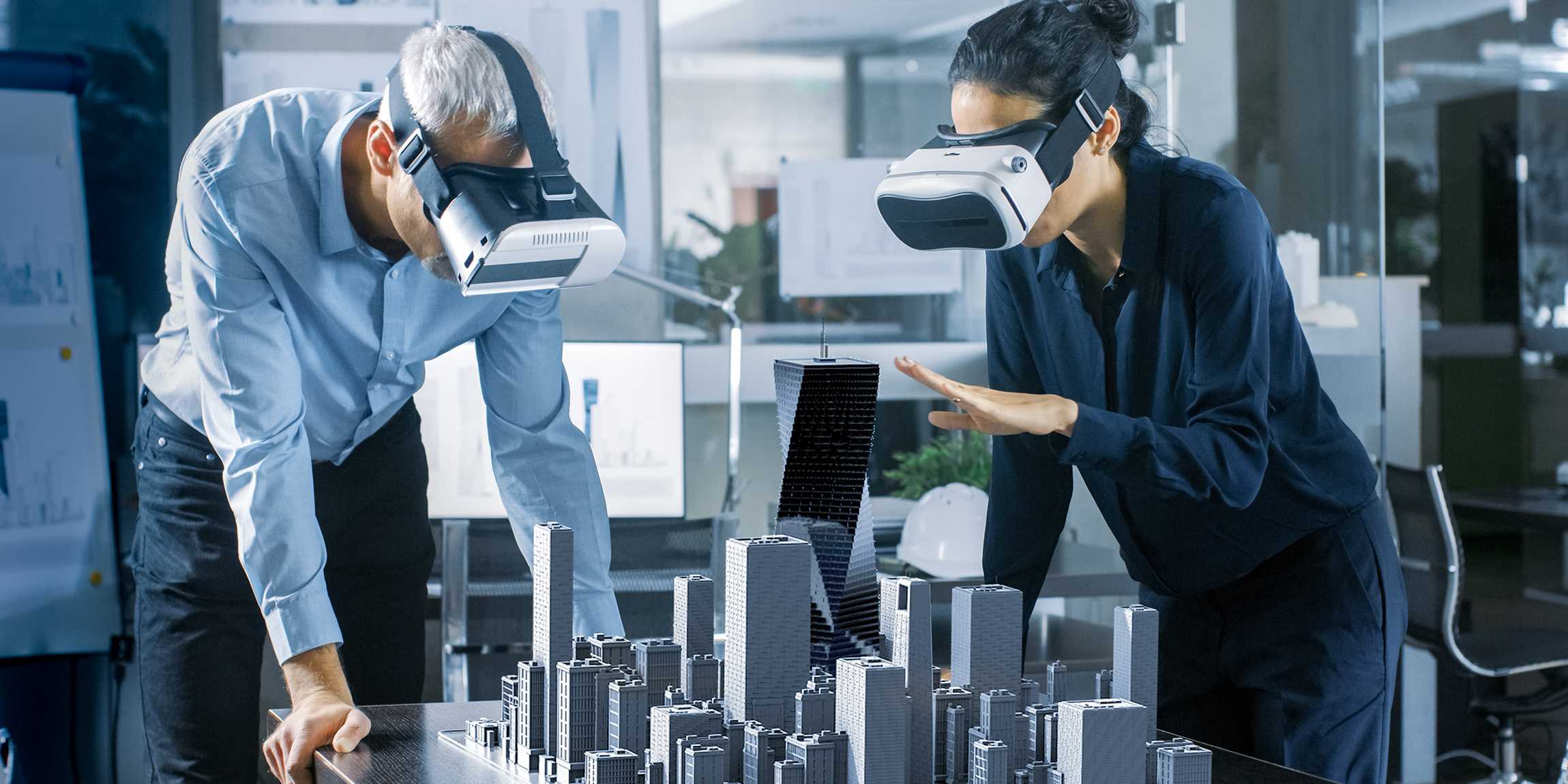The Role of Immersive Technologies in the Future of the Knowledge Industry
How might immersive technologies be used in future collaborations between industrial knowledge workers? MSc MTEC graduate Niklas Friederici developed three scenarios in his Master's thesis, for which he won the 2021 Ernst Blickle Graduate Award from the SEW-EURODRIVE Foundation.

The Covid-19 pandemic obliged many of us to use immersive technologies in our professional collaboration, with the most basic and widespread example being Zoom calls. Niklas Friederici’s Master’s thesis, The Future of Immersive Technologies for Collaborative Tasks of Industrial Knowledge Workers: a Scenario Analysis, takes a deep look at which immersive technologies are best adapted for what kinds of collaboration between what type of workers. Niklas is convinced that what we have seen until now is only the tip of the iceberg. “I am convinced that companies and other organisations can benefit from the advantages of immersive technology to allow new forms of work for their employees,” he says.
“I am convinced that companies and other organisations can benefit from the advantages of immersive technology to allow new forms of work for their employees.”Niklas Friederici
The Covid-19 pandemic obliged many of us to use immersive technologies in our professional collaboration, with the most basic and widespread example being Zoom calls. Niklas Friederici’s Master’s thesis, The Future of Immersive Technologies for Collaborative Tasks of Industrial Knowledge Workers: a Scenario Analysis, takes a deep look at which immersive technologies are best adapted for what kinds of collaboration between what type of workers. Niklas is convinced that what we have seen until now is only the tip of the iceberg. “I am convinced that companies and other organisations can benefit from the advantages of immersive technology to allow new forms of work for their employees,” he says.
Niklas wrote his thesis under the co-supervision of Professor Stephan Wagner of ETH Zürich (D-MTEC) and Dr Thomas Bohné of the University of Cambridge (IfM). “The topic emerged during the first weeks of preparing for my thesis by reading lots of different literature on technology-augmented work,” he says. “Over time, the elements of collaboration, knowledge workers, and immersive technology manifested. This was while everyone was working from home during the Covid pandemic, and knowledge workers could no longer collaborate in person but only through technological means – hence the topic was (and of course still is) highly relevant.”
Three scenarios, five technological use cases
Niklas developed three scenarios (development engineer in an established production company; business consultant in a modern service organisation; data scientist in a metaverse platform organisation). For each of the scenarios, he ranked the future importance of five different types of possible collaboration via immersive technologies. While the business consultant will rely most on a shared workspace – for example, for data analysis sessions via augmented or virtual reality – the development engineer is likely to make more use of the capacity to annotate a (virtual) physical object, adding suggestions for improvement to a prototype on display.

Overall, however, each of the scenarios could profitably make use of each of the five technological use cases: learning from a remote expert (as in a virtual inspection, a virtual company tour, or the explanation of a given object); sharing a virtual workspace (for discussion, analysis, or as a virtual office); sharing an experience (e.g., of a product, presentation, or environment); tele-presence (in the form of a feedback talk, interview, or meeting, for example); and co-annotation (of a file, a schedule, or an object).
The scenario planning process
The main methodology Niklas employed was the scenario planning process. A scenario is here defined as a possible future developed through the systematic combination of interconnected key factors assumed to shape the future of the field of interest. The five-step approach Niklas chose for his thesis involved identifying the scenario fields through a literature review; identifying key influencing factors through focus group sessions; performing an impact analysis on the key factors to identify the relationships between them and between them and superordinate driving forces; generating scenarios via a morphological analysis and then validating them, through expert interviews, on the criteria of plausibility, consistency, relevance, novelty/challenge, and differentiation; and, finally, connecting the scenarios to the relevant technological use cases as described above.
A take on the MSc MTEC programme
Niklas was attracted to the MSc MTEC programme by its interdisciplinary nature and its focus on the intersection of technological and managerial topics. Besides all the friends he made, the highlights of his D-MTEC career were “my OBIS presidency, holding the graduation speech at MTEC Day, the Entrepreneurial Leadership Seminar, and writing my Master’s thesis in Cambridge.” Professor Brusoni’s lectures on the S-curves of technology adaptation and the mathematical models introduced in Professor Schweitzer’s Systems Dynamics lecture remain the highlights of his academic studies, while on a personal level he came to value “the importance of consistency and perseverance in becoming good at something.” Asked what he would like to pass on to future generations of D-MTEC students, Niklas says, “Enjoy it! Especially now that in-person events are returning, take every opportunity to connect and exchange with others.”
Ernst-Blickle Graduate Award
The external page Ernst-Blickle Graduate Award is presented annually by the SEW-EURODRIVE-Foundation to students from the subject areas of electrical and mechanical engineering, management, and economics. In addition to the quality of the thesis content and its academic value, factors such as an appropriate timeframe and the linking of different disciplines are key selection criteria. The award comes with a cash prize of 2,500 euros.